Features
THE REDACTION OF WOMEN'S RIGHTS
The Rise and Fall of Civil Liberties in Afghanistan
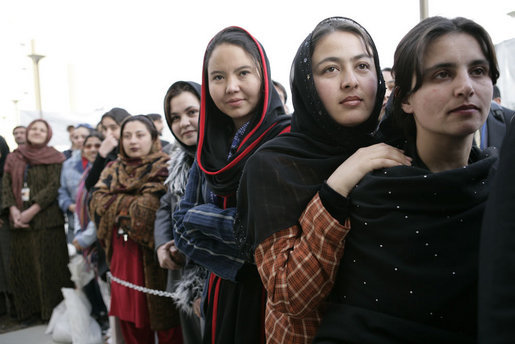
by Susan Farooqi, Jurist
When we think of women in Afghanistan, we often assume that they are oppressed, and recall images of women in burqas and stories of women being brutalized. Although there is a lot of truth to these perceptions, the situation has been different in the past, and could be different in the future. Efforts to improve women's rights do not need to resist centuries of tradition; they need to merely reverse recent developments, which are themselves ahistorical.
Although women in Afghanistan were indeed historically oppressed by patriarchy, just as women in medieval Europe were often treated more as property than as individuals, this process began to change during the nineteenth century, as liberalism became an increasingly global philosophy. In particular, during the 1920s, just as women in the United States experienced new freedoms, including the right of suffrage, women in Afghanistan were also able to extend their rights and achieve what was essentially a modern status. It was not until the 1980s that this trend was reversed.
SYRIA'S KURDISH CONTRADICTION
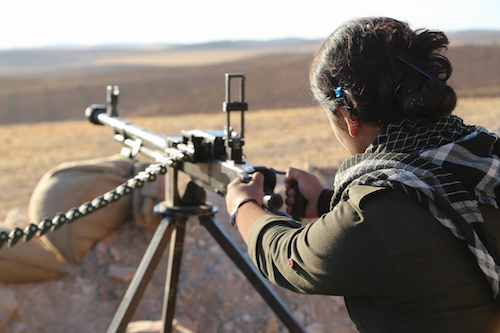
by Bill Weinberg, Los Angeles Review of Books
A strange paradox of the vertiginous world situation is that a radical left movement strongly influenced by anarchism is being massively backed by the Pentagon in the war for northern Syria. This movement, in fact, is now the United States' closest partner among the indigenous forces in the Syrian war.
The Kurds of northern Syria call the region Rojava (sunset or west in their tongue), and since 2012 have had their own autonomous zone. Two years later, the celebrated battle of Kobani opened as this town within the autonomous zone was besieged by the self-declared "Islamic State" (ISIS). Kurdish women fighters with a consciously feminist ideology driving back the ultra-reactionary ISIS became a global meme.
The US, after initially writing off Kobani, started aiding the Kurdish fighters as they began to turn the tide, against all expectations. Warplanes were sent in their support, and the pact between the Pentagon and the revolutionary Kurds was forged. US military advisors were embedded in their militia. Kurdish-led forces are now fighting to take the ISIS de facto capital Raqqa in a Pentagon-directed campaign backed by US air-strikes.
AFTER GUARI LANKESH
Standing for the Human Rights of Journalists in India
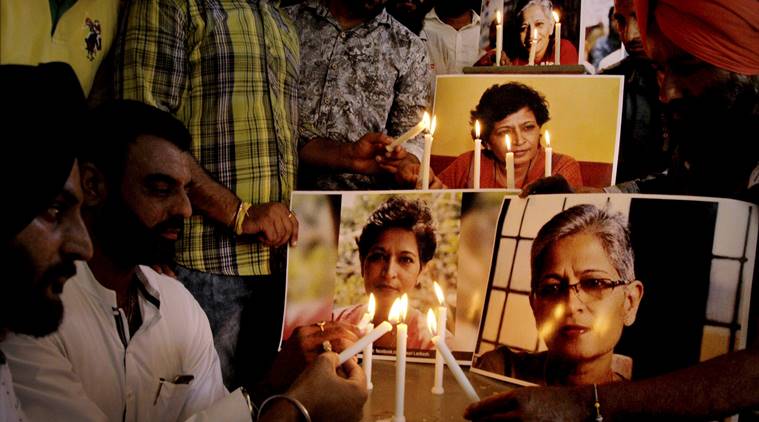
by Nava Thakuria, CounterVortex
India, touted as the world's largest democracy, is and remains a dangerous place for working journalists irrespective of the regime in power at New Delhi or any provincial capital. The populous country witnesses the murder of around five media workers each year, an average that has not changed for decades. And few of these cases see any justice in the country's court system. The media workers' community in the South Asian nation now plans to observe the Oct. 2 birthday of Mohandas Karamchand Gandhi—a lawyer turned journalist turned India's liberation hero—with countrywide demonstrations to demand freedom of expression and an end to the atmosphere of impunity.
The month of September saw three shocking journo-murders from different parts of India. So far, 2017 has witnessed the killing of eight journalists—to a lukewarm reaction from the authorities. It was only the murder on Sept. 5 of editor-journalist Gauri Lankesh, 56, at her home in Bangaluru (formerly Bangalore) that aroused massive protests across the country.
PANAMA: CRIMINALIZATION OF THE NGÄBE
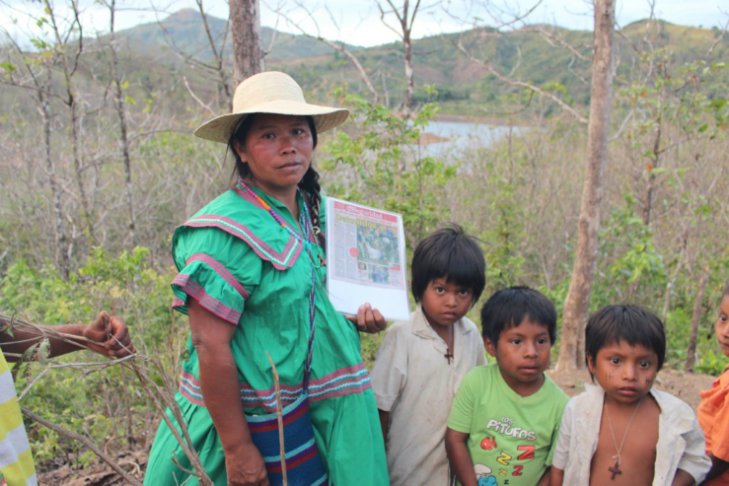
by Tracy Barnett, Intercontinental Cry
Manolo Miranda, leader of an indigenous community recently flooded by Panama's Barro Blanco dam, now faces up to two years in prison for causing delays and financial losses to the company that has ruined his community's way of life.
Miranda began trial Aug. 18, together with two other leaders of the Ngäbe-Buglé who opposed the dam, regional cacique Toribio García and religious and protest leader Clementina Pérez. All three face up to two years in prison for trespassing and interfering with the "inviolability of work" for their alleged role in an encampment that blocked the entrance to the hydro dam site in May and June of 2015. Charges against two other activists who were present at the encampment, Oscar Sogandares and Carmen Tedman, have been provisionally dismissed.
CUBA VERDE REVISITED
Will Island's Ecological Solutions Survive Economic Opening?
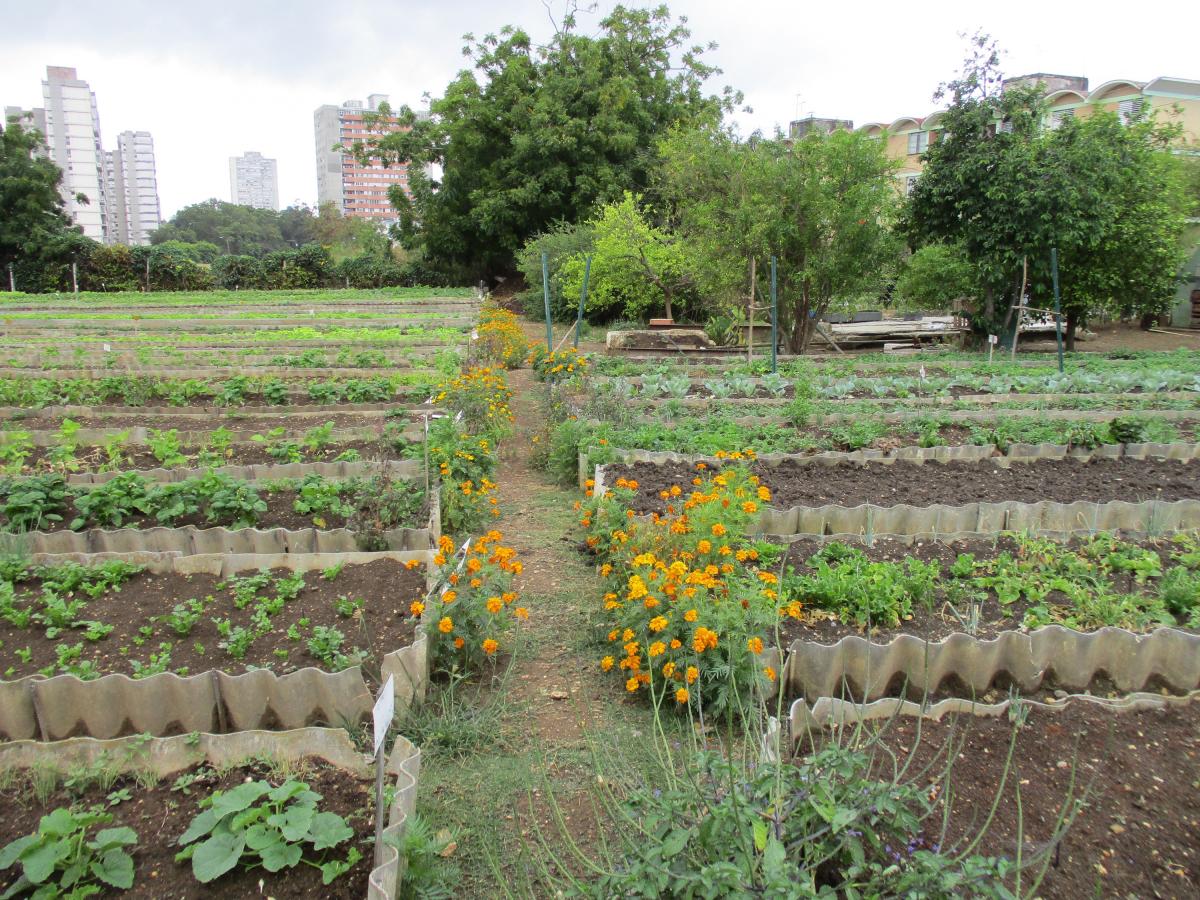
by Bill Weinberg, Earth Island Journal
Bicycle-taxi driver Yeral García has a keen sense of the events on the world historical stage that led to him pedaling me around Old Havana.
"In 1991, the Soviet Union collapsed, and Russia cut back subsidized oil to Cuba," he told me while deftly maneuvering through the traffic. "The country was paralyzed. Those were terrible years. But the government began importing bicycles."
Indicating the pedal-cab he was assiduously working as he spoke, he added, "That’s where this came from."
But these taxis, while plentiful on the streets of Havana, are lone survivors of that era. Although universally called bici-taxis, they are actually tricycles—retrofitted work-trikes initially imported from China to carry loads around the city during that interval of crisis and scarcity referred to officially as Cuba's "Special Period."
DISMANTLING POWER
Zapatista Presidential Candidate's Vision to Transform Mexico from Below
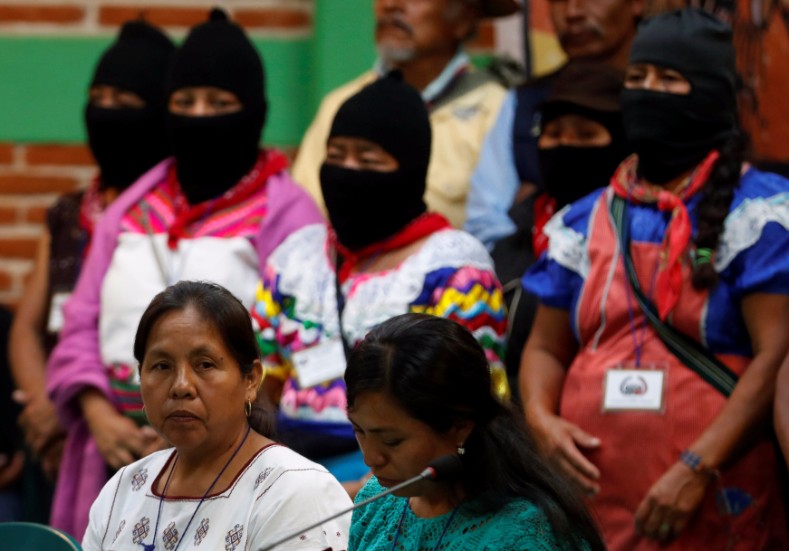
by Benjamin Dangl, Toward Freedom
The Zapatistas and National Indigenous Congress (CNI) held an assembly in May in which they chose María de Jesús Patricio Martínez, a Nahua indigenous healer, as their spokesperson and presidential candidate for the 2018 elections in Mexico.
Patricio's candidacy and radical vision for Mexico challenges conventional politics and marks a new phase for the Zapatista and indigenous struggle in the country. The 57-year-old traditional Nahua doctor and mother of three from western Mexico is the first indigenous woman to run for the presidency in Mexico.
Patricio joined the struggles related to the Zapatista Army of National Liberation in 1996, when she was involved in the formation of the CNI, a network of indigenous communities in the country. She began helping out sick members of her community with herbal remedies when she was 20-years-old. Her skills as a healer were passed down to her from elders in the community, and are based on a close relationship with the local ecosystem.
A FEMINIST FUTURE FOR FREE KURDISTAN
Interview with Houzan Mahmoud
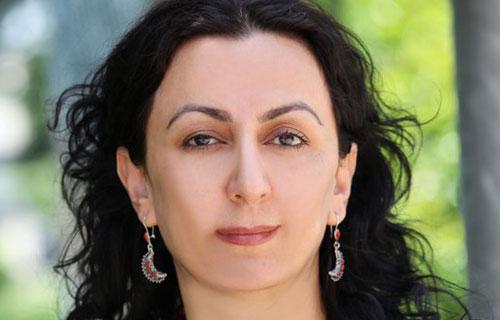
by Scott Douglas Jacobsen, Conatus News
Houzan Mahmoud is the co-founder of the Kurdish Culture Project (or the Culture Project) and the valued partner of Conatus News in the Conference on Defending Progressivism. She is a women’s rights activist, campaigner and defender, and a feminist. In this wide-ranging and exclusive interview, Mahmoud discusses the Kurds, Iraq, women's rights, and more.
Scott Douglas Jacobsen: You are a women's rights activist, feminist, and an anti-war activist. You were born in Iraqi Kurdistan. What were the moments of political awakening for you?
Houzan Mahmoud: One of the things I'll never forget is the break-out of war between Iraq and Iran. I was only six-years-old at the time. Iraq's bloody dictator Saddam Hussein coming to political power in 1979 changed our lives in Kurdistan and Iraq forever. Being Kurdish poses all sorts of problems as it is, and living under the fascist regime of Saddam made things incredibly hard for my family. Prior to Saddam coming to power, my brothers took up arms during late 70's against Iraq's regime, I was too little to remember the particulars. However, what I do know is that from 1973 to 1991 I grew up and lived under one of the most horrendous regimes in modern history.
THE GAZA SIEGE AT TEN
Reaching a Humanitarian and Political Breaking Point
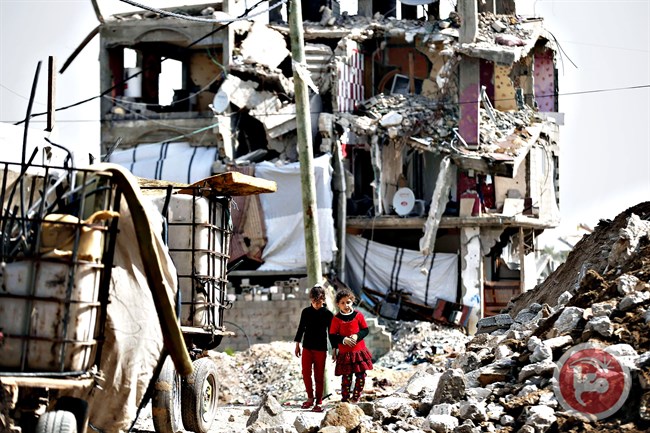
by Chloe Benoist, Ma'an News Agency
BETHLEHEM — As the Gaza Strip marked the ten-year anniversary of Israel's siege of the small Palestinian enclave on June 15, the humanitarian situation has continued to alarm rights groups, which have denounced the "inhuman conditions unparalleled in the modern world."
Gaza, which has often been compared to an "open air prison" for its 1.9 million inhabitants crowded into 365 square kilometers, has suffered from a decade of isolation and deprivation, made all the worse by three devastating Israeli military operations, and persistent intra-Palestinian political strife.
The recent decision by the Palestinian Authority (PA) to request that Israel reduce its supply of electricity to the Gaza Strip has made many fear that the situation in Gaza could soon reach a political and humanitarian breaking point with unforetold consequences.















Recent Updates
1 day 2 hours ago
1 day 2 hours ago
1 day 2 hours ago
4 days 5 hours ago
1 week 2 days ago
1 week 2 days ago
1 week 3 days ago
1 week 3 days ago
1 week 4 days ago
1 week 4 days ago